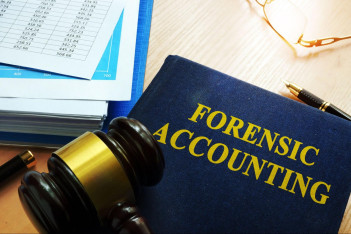Probate and Estate Administration: A Comprehensive Guide
When an individual passes away, the management and distribution of their estate become essential processes that require careful legal attention. Probate and estate administration are key legal procedures designed to ensure that the deceased person’s debts are paid and their assets are properly distributed according to the law or their wishes, if a valid will exists. This article, presented by Legal Marketplace CONSULTANT, provides detailed insight into the probate and estate administration process, its importance, the roles involved, and tips for successful and timely estate management.
What is Probate?
Probate is the judicial process through which a deceased person's will is validated and their estate is administered. It involves the legal recognition of the will, appointment of estate representatives, settling debts and taxes, and distributing the remaining assets to heirs or beneficiaries. If the deceased did not leave a will, probate helps administer the estate under the state’s intestacy laws.
This court-supervised process is essential to ensure that debts and taxes are paid before beneficiaries receive their inheritance, thereby protecting the rights of all parties involved. Probate establishes the legitimacy of the will and appoints executors or administrators to handle estate affairs.
The Importance of Probate and Estate Administration
Proper estate administration through probate plays a crucial role in managing the assets and liabilities of a deceased individual. Without court approval and supervision, the transfer of assets could lead to legal disputes, delays, or mismanagement. Probate provides legal safeguards to:
- Protect creditors’ rights by ensuring valid debts are identified and paid;
- Confirm legal ownership by validating the deceased’s will or through intestacy rules;
- Provide a clear process for distributing assets to rightful heirs or beneficiaries;
- Establish accountability of the estate executor or administrator through court oversight;
- Resolve disputes arising from ambiguous wills or contested claims.
Key Roles Involved in Probate and Estate Administration
Several parties play important roles in probate and estate administration. Understanding these roles clarifies responsibilities:
- Decedent: The individual whose estate is being administered after their passing.
- Executor: Named in the will, the executor is responsible for managing the estate through probate, including notifying creditors, filing reports, and distributing assets. If no will exists, an administrator is appointed by the court.
- Heirs or Beneficiaries: Individuals or entities entitled to receive assets from the estate.
- Creditors: Parties to whom the decedent owed debts. Executors must notify and settle creditor claims during probate.
- Probate Court: The legal authority that supervises the probate process to ensure compliance with state laws.
- Legal Counsel: Attorneys who assist with navigating probate laws, filing documents, and representing parties in court.
Steps Involved in Probate and Estate Administration
The probate process generally follows a structured sequence of steps, which can vary slightly by jurisdiction but typically include the following:
- Filing a Petition for Probate: The executor or an interested party files a petition with the probate court to open the estate and start the probate process.
- Notifying Heirs and Creditors: The executor must legally notify all named heirs, beneficiaries, and potential creditors to allow claims against the estate.
- Validating the Will: The court examines the will to certify its authenticity and that it complies with legal requirements.
- Inventorying Estate Assets: The executor compiles a detailed list of the decedent’s assets, including property, bank accounts, investments, and personal belongings.
- Appraising Assets: Some assets require formal appraisal for accurate valuation before distribution.
- Paying Debts and Taxes: The executor pays valid debts, outstanding bills, and required taxes from estate funds.
- Filing Reports with the Court: Periodic status reports must be submitted to the probate court detailing payments made and estate status.
- Distributing the Remaining Assets: Once debts and taxes are settled, the executor distributes the remaining assets to beneficiaries according to the will or laws of intestacy.
- Closing the Estate: After all duties are performed, the executor files a final report to close the estate officially.
Common Challenges in Probate and Estate Administration
Although probate is a routine legal procedure, several challenges can complicate the process leading to significant delays or disputes. Some common issues include:
- Missing or unclear wills causing disputes among heirs;
- Unknown or numerous creditors making debt settlement difficult;
- Asset identification complexities, especially in cases involving multiple properties or business interests;
- Executor mismanagement or failure to comply with legal requirements;
- Lengthy court procedures and administrative backlog;
- Conflicts between beneficiaries leading to legal challenges.
Overcoming these challenges requires diligence, thorough documentation, and often professional legal assistance.
The Role of Executor: Responsibilities and Best Practices
The executor holds a pivotal role in estate administration. Their responsibilities begin immediately upon being appointed and last until the estate is formally closed. Key duties include:
- Locating and securing the will;
- Filing the probate petition with the court;
- Notifying and communicating with creditors and beneficiaries in a timely manner;
- Gathering and valuing estate assets;
- Managing estate finances, paying debts, and filing necessary tax returns;
- Maintaining accurate records and filing detailed reports to the probate court;
- Distributing assets in conformity with legal requirements and the directives of the will;
- Closing the estate administratively and legally once all obligations are fulfilled.
Best practices for executors include staying organized, adhering strictly to deadlines, seeking professional advice when needed, and maintaining impartiality throughout the process to avoid conflicts.
When to Seek Legal Assistance in Probate Matters
Navigating probate and estate administration can be complex, especially in cases involving large estates, multiple heirs, contested wills, or complicated debts. While some estates may be straightforward enough for family members to administer independently, professional legal help is recommended to:
- Avoid procedural errors that can cause costly delays;
- Resolve disputes among heirs or creditors effectively;
- Ensure compliance with probate and tax laws;
- Assist with complex asset valuation and distribution;
- Provide peace of mind throughout a stressful process.
Legal Marketplace CONSULTANT offers expert probate and estate administration services. Reach out through the contact information provided in our bio or send us a private message to schedule a consultation.
Tips for a Smooth Probate Process
Effective preparation and organization can significantly reduce the time and stress involved in probate and estate administration. Consider the following tips:
- Gather all important documents related to the deceased’s assets, liabilities, and personal information early;
- Keep detailed records of all communications, transactions, and court filings;
- Maintain open and transparent communication with heirs and beneficiaries to manage expectations;
- Consult with financial advisors and tax professionals to optimize estate management;
- Seek legal guidance promptly if you encounter uncertainties or disputes;
- Respect deadlines and court requirements rigorously to avoid procedural setbacks;
- Be patient and methodical, as probate can be lengthy but thorough administration is essential.
Understanding Probate Timeline and Costs
The probate timeline varies depending on the complexity of the estate and the jurisdiction. While some cases may close within a few months, others could extend over a year or more. Factors influencing the duration include the size of the estate, number of creditors, court schedules, and presence of disputes.
Costs associated with probate often include court fees, executor fees, attorney fees, appraisal and accounting costs, and taxes. Proper planning and efficient administration can help minimize expenses.
Estate Planning to Avoid Probate Complications
Proactive estate planning is essential for reducing probate complications and ensuring the smooth transfer of assets. Steps to consider include:
- Creating a clear, legally valid will outlining asset distribution;
- Setting up trusts to bypass probate for certain assets;
- Designating beneficiaries on financial accounts and insurance policies;
- Updating estate plans regularly to reflect life changes;
- Consulting with experienced attorneys for tailored strategies and compliance.
These measures can reduce uncertainty, speed up the estate settlement process, and preserve assets for beneficiaries.
Probate and estate administration are critical legal processes that ensure a deceased individual’s affairs are managed lawfully and fairly. Though the steps can be complex and demanding, understanding the process, fulfilling executor duties diligently, and seeking qualified legal assistance can streamline estate settlement and help avoid costly delays or disputes. Legal Marketplace CONSULTANT is ready to support you through every stage of probate and estate administration. Contact us via the communication channels in our bio or send a private message for expert advice and assistance.
Legal Marketplace CONSULTANT is a trusted legal firm specializing in comprehensive legal services for individuals and businesses. Our expert team includes attorneys, legal consultants, tax advisors, and accountants dedicated to providing professional support at every step.































